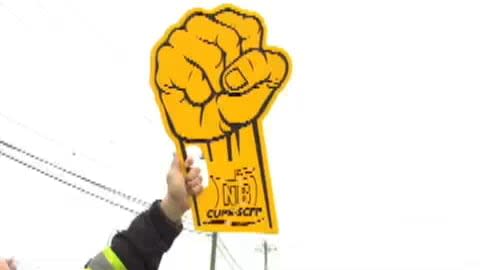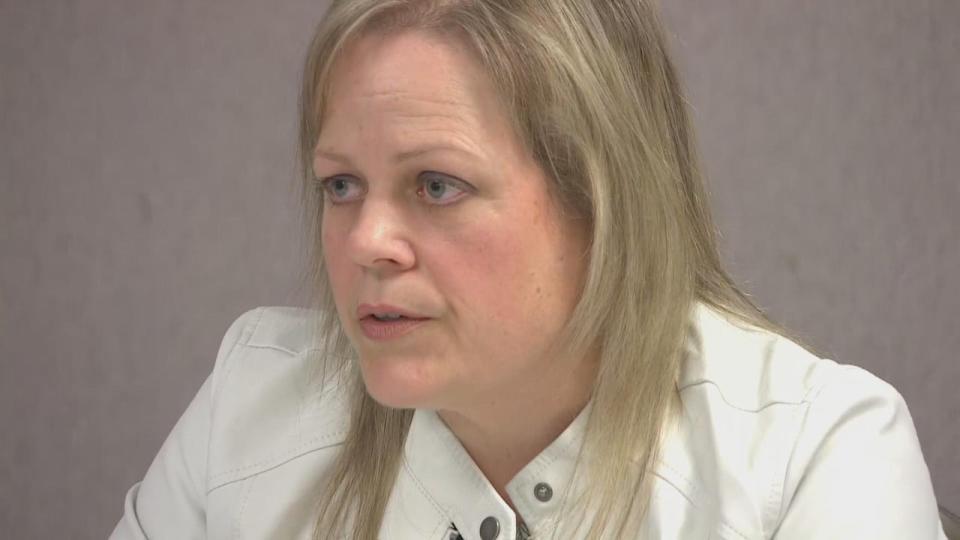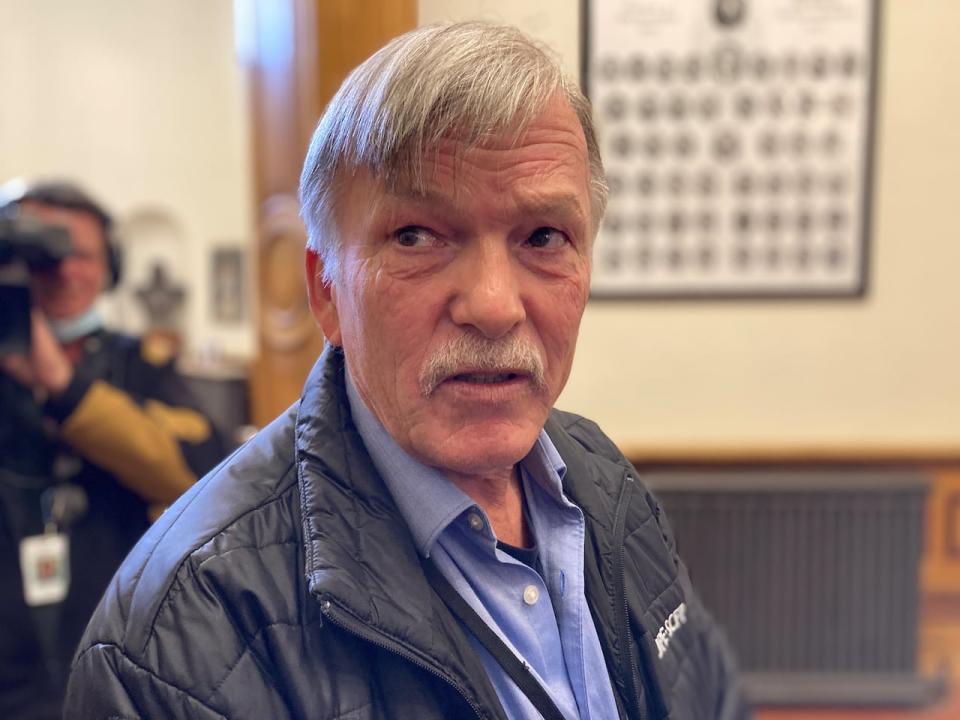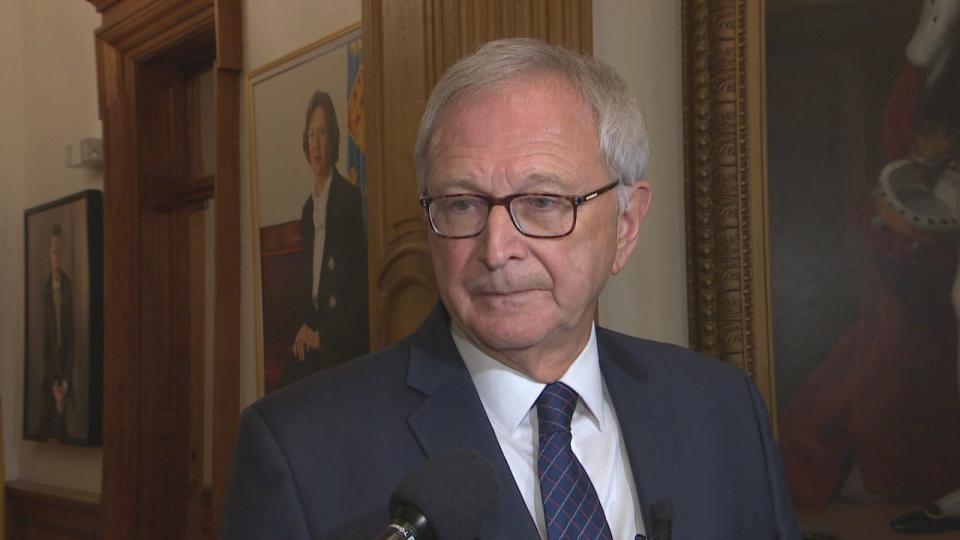Union leaders warn of illegal strikes over Higgs's pension bill

Public-sector union officials have raised the possibility of illegal strikes by their members over a Higgs government bill that would force them into a new pension plan.
The province introduced the legislation last week, which affects five different employee groups, and it could pass and become law by Friday.
Leaders of the Canadian Union of Public Employees were coy during a news conference Monday about whether they would encourage or approve of wildcat walkouts.
"I'm sure you can appreciate that as union leaders, we're not going to encourage our members to do illegal action," said Sandy Harding, the union's regional director.
"Now what our members decide to do on their own — our very angry members — we're going to have to listen to what they're saying," said Harding, who acknowledged no workers are in a legal strike position.
"They believe what the government is doing is illegal. We believe it as well. … Our members will decide what they're going to do to match that illegal action."

Sandy Harding, regional director for the Canadian Union of Public Employees, warned MLAs to 'think about their political future' if they want to get re-elected. (Radio-Canada)
CUPE New Brunswick president Stephen Drost said he would not put himself "and the members at risk by divulging what we may or may not do. We are looking at any and all possible action, up to and including job action."
Premier Blaine Higgs said if that happens, the government will act quickly.
"We will appeal directly to the labour board if there's any job action taken," he said.
The Pension Plan Sustainability and Transfer Act would force two CUPE locals in the education sector and three groups in the New Brunswick Council of Nursing Home Unions into a process to determine the future of their pension plans.
It requires them to choose one of three different shared-risk pension plans and for the transition to begin by Feb. 1.

Stephen Drost, president of the Canadian Union of Public Employees in New Brunswick, says some PC MLAs have told CUPE they were surprised by the legislation. (Jacques Poitras/CBC)
The two CUPE locals, representing school custodians, maintenance workers, bus drivers and administrative staff, signed a side agreement on pensions with the province in 2021 at the end of a 16-day strike.
It set up a separate process to resolve the issue.
Last week, Higgs accused the union of dragging its feet and declared it was time to legislate a solution.
CUPE said the contract it signed in 2021 does not allow the province to do that, making the legislation a violation of the agreement and of collective bargaining rights.
That is an interpretation the premier rejected Monday.
"There's no collective agreement that's breached here. … This is not about the collective agreement."

The Higgs government has said it will extend the session past the scheduled Friday adjournment if that's what is needed to pass the bill. (Ed Hunter/CBC)
Drost and Harding said CUPE local presidents and other union leaders from around the province would meet Tuesday to discuss how to respond.
"We have every option on the table at this point," Drost said.
"We certainly are looking at every action, and this is not just going to be symbolic."
The CUPE leaders also had a warning for Progressive Conservative MLAs who will be campaigning for re-election in 2024.
"All MLAs had better think about their political future in this," Harding said.
"If they want to get elected again, they better understand how this touches all New Brunswickers. It touches all labour workers, in this province and nationally, when you bring in a law that breaks signed collective agreements."
Drost said some PC MLAs have told CUPE they were "extremely surprised" by the legislation and he encouraged them to speak up and encourage Higgs to withdraw the bill.
But Higgs said the entire caucus was briefed before it was introduced, so all MLAs were "very aware of this and were all supportive of us moving in this direction."
The opposition Liberals have vowed to debate the bill at length, while the Green Party says it will use all the procedural tools it has in the legislature to block it altogether.
The government said last week it will extend the session past the scheduled Friday adjournment for Christmas if that's what is needed to pass the bill.
Higgs said Monday he did not expect the bill to get approved by Friday.


